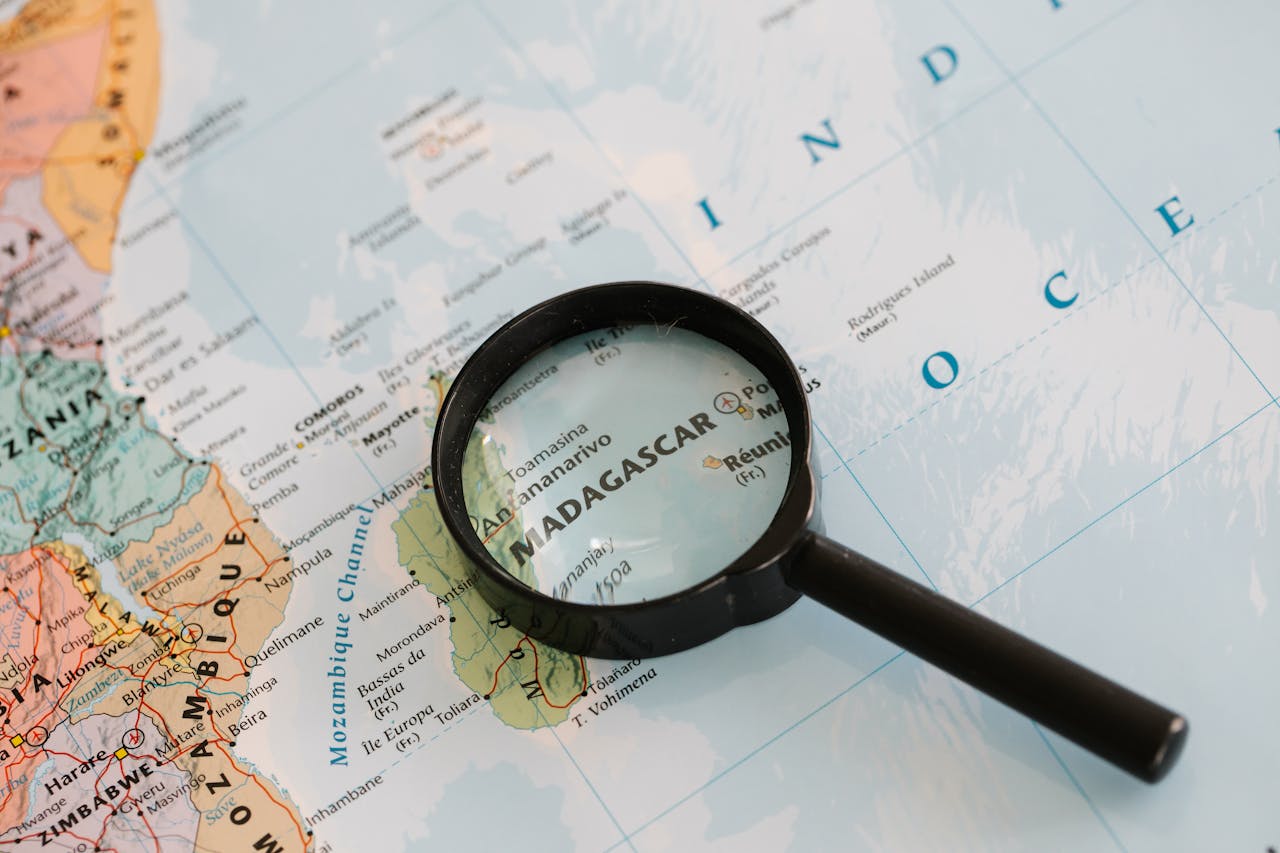Madagascar, the fourth-largest island in the world, is a place like no other. Located in the Indian Ocean off the southeastern coast of Africa, this island nation is a true testament to the wonders of evolution, biodiversity, and cultural richness. With its stunning landscapes, rare wildlife, and vibrant traditions, Madagascar is a destination that offers something for every traveler.
A World Apart: The Geography of Madagascar
Madagascar’s geography is as diverse as its wildlife. Stretching over 226,000 square miles, the island is characterized by vast rainforests, dry spiny forests, highland plateaus, and coastal beaches. The island’s isolation from the African continent for millions of years has allowed its flora and fauna to evolve in unique ways. This geographical seclusion has turned Madagascar into an evolutionary “hotspot,” where more than 90% of its wildlife is found nowhere else on Earth.
The central highlands are dotted with terraced rice fields, while the rainforests of the east are home to towering trees and winding rivers. In the south, you’ll find the eerie spiny forests, and along the western coast, pristine beaches meet the turquoise waters of the Indian Ocean. Each of these landscapes offers its own special charm, making Madagascar a place of incredible contrasts and beauty.
The Extraordinary Wildlife of Madagascar
Perhaps what sets Madagascar apart most is its unparalleled biodiversity. The island is home to species that exist nowhere else on the planet, many of which are endangered or threatened. The most famous of these is the lemur, a primate that has become synonymous with the island. From the tiny mouse lemur to the majestic indri, lemurs are a fascinating and diverse group of animals that range from nocturnal creatures to daytime acrobats.
Other unique species include the chameleons, the largest of which is the magnificent Parsons chameleon, and the bizarrely beautiful fossa, a carnivorous mammal that resembles a small cougar but is more closely related to the mongoose. Madagascar is also known for its incredible array of plant life, including the iconic baobab trees, which have earned the nickname “the upside-down tree” due to their striking appearance.
The Rich Cultural Heritage
Madagascar’s human history is just as rich and diverse as its natural one. The island’s culture is a melting pot of influences from Southeast Asia, Africa, the Middle East, and even Europe. The Malagasy people trace their roots to both Austronesian and African ancestors, and this blending of cultures is evident in the island’s language, music, cuisine, and customs.
The Malagasy language, which has roots in both Bantu and Austronesian languages, is spoken throughout the island. Traditional Malagasy music, often accompanied by rhythmic dances, is an important part of community life. In terms of cuisine, rice is a staple, often served with a variety of meats, vegetables, and spicy sauces. Street food is also a big part of the culture, with vendors selling local snacks such as “mofo gasy” (Malagasy pancakes) and “koba” (a sweet treat made of rice, peanuts, and banana).
A Destination for Adventurers and Nature Lovers
For nature lovers and adventurers, Madagascar is a dream come true. The island offers numerous opportunities for hiking, birdwatching, and exploring remote, untouched wilderness areas. Travelers can visit national parks like Andasibe-Mantadia, famous for its lemur populations, or Isalo National Park, with its rugged sandstone formations and canyons. The marine life around the island is equally impressive, with opportunities for snorkeling and diving in crystal-clear waters off the coast of Nosy Be or Île Sainte-Marie.
However, with the growing popularity of eco-tourism, it’s essential for travelers to be mindful of the environmental challenges facing Madagascar. Deforestation, habitat loss, and climate change are all pressing issues. By supporting responsible tourism, visitors can help preserve the unique landscapes and ecosystems that make Madagascar so special.
A Place Like No Other
Madagascar is an island that feels truly otherworldly. With its extraordinary biodiversity, stunning natural landscapes, and rich cultural traditions, it offers an experience that cannot be replicated anywhere else on Earth. Whether you are trekking through lush rainforests, gazing at the iconic baobabs, or immersing yourself in the vibrant local culture, Madagascar promises to be an unforgettable adventure for all who visit.



